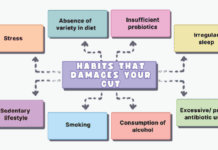DO you love barbequed meat? Or perhaps the smoky flavour of charred meat?
Well, according to the National Cancer Institute in the USA, heterocyclic amines (HCAs) and polycyclic aromatic hydrocarbons (PAHs) are chemicals formed when muscle meat, including beef, pork, fish, or poultry, is cooked using high-temperature methods, such as pan frying or grilling directly over an open flame.
In laboratory experiments, HCAs and PAHs have been found to be mutagenic—that is, they cause changes in DNA that may increase the risk of cancer.
The formation of HCAs and PAHs varies by meat type, cooking method, and “doneness” level (rare, medium, or well done).
Whatever the type of meat, however, meats cooked at high temperatures, especially above 148ºC (as in grilling or pan frying), or that are cooked for a long time tend to form more HCAs.
While studies have shown that exposure to HCAs and PAHs can cause cancer in animal models, population studies have not established a definitive link between HCA and PAH exposure from cooked meats and cancer in humans.
Nevertheless, researchers in epidemiologic studies have found that increased consumption of such meats led to an increase in certain types of cancers.











